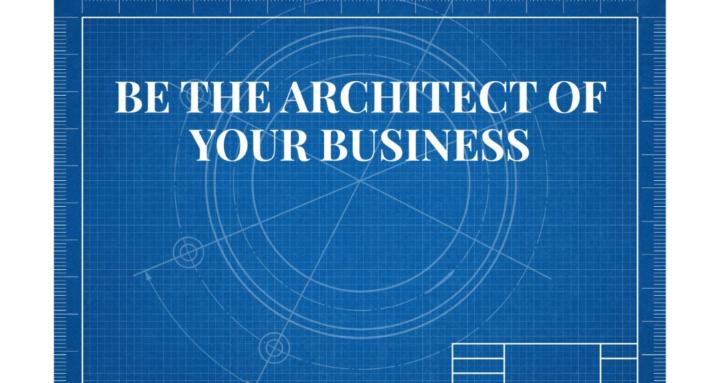
Write something
Welcome! Introduce yourself + share a pic of your workspace 🎉
Let's get to know each other! Comment below sharing where you are in the world, a photo of your workspace, and something you like to do for fun. 😊 I would like to kick off a vote to get some insights on what areas of your business your finding the most challenging?
Poll
4 members have voted
The 78% Rule: Why Most Hotels Are Wasting Money on Front Desk Labor
Ever wondered what most front desk calls are actually about? Analysis of 50+ hotels tells the story: 78% of front desk calls are the same 5 questions: - What time is breakfast? - Do you have parking? - What's the WiFi password? - Can I check in early? - Where's the nearest transport hub? The problem: You're paying full-time salary for someone to answer these on repeat. The fix: Voice AI handles these for a fraction of the cost. Your team focuses on the 22% that actually matters - the guest who's upset, the VIP arrival, the upsell opportunity. Action step: Record your front desk calls for one week. Count how many are repetitive. If it's over 50%, you're sitting on a significant cost-saving opportunity. Labor shortage isn't always a hiring problem. Sometimes it's a task allocation problem. Please DM me if you have any question
2
0
Emotional Intelligence & Adaptive Leadership
Today I'd like to share my presentation to my team, this is an important topic that many owners and managers neglect or have not been taught. If you enjoyed this topic please let me know in the comments. ARCHITECT HOSPITALITY Emotional Intelligence & Adaptive Leadership INTRODUCTION “Good morning everyone, and thank you for joining me. Today we’re going to explore one of the core leadership frameworks inside Architect Hospitality — Emotional Intelligence and Adaptive Leadership. These two skill sets directly define how we communicate, how we support our teams, how we navigate conflict, and ultimately how we create consistent, elevated hospitality across all of our venues.” CHECK-IN “Before we start, I’d like to see where everyone’s at. How familiar are you with Emotional Intelligence and Adaptive Leadership? a) I’ve never heard of it b) I’ve heard of it but never applied it c) I know the basics d) I’m confident in my understanding Drop your letter in the chat.” “Perfect — that helps shape how deep we go today.” PART 1 — EMOTIONAL INTELLIGENCE “Let’s start with Emotional Intelligence — the foundation of strong leadership. We follow a five-pillar EI model: 1. Self-Awareness Understanding your emotions, patterns, triggers, and reactions. 2. Self-Regulation Choosing calm, controlled responses under pressure rather than reacting emotionally. 3. Motivation Your internal drive — showing up consistently, driven by pride and standard, not external pressure. 4. Empathy Recognizing what a team member is feeling, even when they don’t verbalize it. 5. Social Skills Communication, coaching, conflict management, influence, and relationship-building. These are not soft skills — they are leadership tools.” PART 2 — ADAPTIVE LEADERSHIP “Next, we layer in Adaptive Leadership. This model teaches that there is no single leadership style that works for every person or every moment. Great leaders shift between four styles: 1. Directing Clear instruction, low emotional support — perfect for new or inexperienced staff.
🗣️ The Thankful Customer Economy
I’ll never forget the moment I first understood the difference between a transaction and a value exchange. A transaction is simple: a guest gives us money, we give them food and service. But what if we could elevate that moment so much that the guest actually thanks us for the opportunity to pay? That’s the heart of what I call the Thankful Customer Economy. 🍊 The Orange & Apple Analogy Imagine this: one person has a delicious orange, another has a crisp apple. They trade, and both walk away happy, even thanking each other. Why? Because both felt like they gained more than they gave. That’s the magic we want to create in hospitality. 🍽️ From Transaction to Value Exchange Our guests give us their hard-earned money (their orange). In return, we give them our food, service, and atmosphere (our apple). The goal is to make our “apple” so exceptional that they leave thinking they got the better end of the deal. 🔑 The Three Pillars of Creating the Bargain 1. The Product → Exceed expectations with great food, presented with pride. 2. The Service → Add the personal touch: anticipate needs, connect genuinely, handle challenges gracefully, and notice the little things. 3. The Atmosphere → Deliver the unseen experience: clean spaces, great energy, and a welcoming environment guests can’t get at home. 🙏 The Result: A Thankful Customer When we get this right, guests don’t just leave full — they leave grateful. That “thank you” at the end isn’t just polite. It’s real. It’s loyalty. It’s the foundation of repeat business and word-of-mouth growth. In the Thankful Customer Economy, we’re not just servers or managers. We’re artisans of the value exchange. 💬 Question: What’s one small detail you’ve seen — or done — in a pub or restaurant that turned a simple transaction into a genuine thank you?
Developing & Empowering Staff
Busy managers are doers. They jump behind the bar, fix tickets, close tills—because “it’s faster if I just do it.” But the problem is, you never grow past firefighting. Productive managers: - Train staff so tasks don’t bottleneck with them. - Empower supervisors with responsibilities. - Build accountability systems so the manager can focus on coaching instead of doing. Case Example:A floor manager insisted on doing all guest complaints herself. Staff waited for her every time. Eventually, she trained two supervisors to handle first-level complaints using a simple script: “Listen. Apologize. Offer. Escalate only if necessary.” Complaints dropped by 40% because staff could solve issues instantly. Reflection Exercise: - Write down one task you refuse to delegate. - Why haven’t you delegated it? - What training or trust system would allow you to hand it off this week?
1-21 of 21
powered by

skool.com/architect-hospitality-5515
Build systems, not goals. We guide hospitality business owners in creating custom systems to boost profitability, personal growth, and reduce stress.
Suggested communities
Powered by

